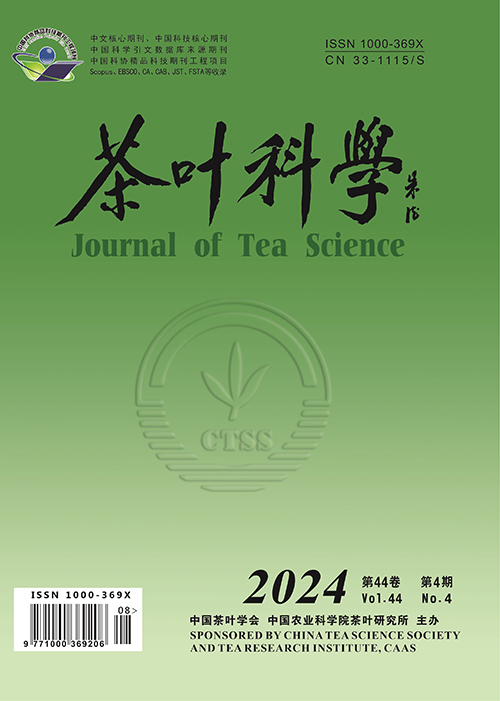Clonal plain black tea quality parameters responses of hard physical withered leaf to rehydration and fermentation durations
引用次数: 0
Abstract
Hard physical withers in tea processing result in reduced plain black tea quality parameters, but improve flavoury black tea quality. Chemical withers with minimal moisture loss improve plain black tea quality parameters. But chemical withered leaf is normally bulky and not flaccid thus reducing maceration rates. Hard physical withers reduce polyphenol oxidase activity, thereby impairing ability of the leaf to produce high amounts of plain black tea quality parameters, especially theaflavins and thearubigins. This study examined if rehydrating hard physical withered leaf could improve its fermentability and influence fermentation duration, and if such changes are cultivar dependent. Rehydrating hard physical withered leaf increased (p≤0.05) total theaflavins, thearubigins, brightness, total colour and sensory evaluation of resultant black teas. The patterns of the responses did not vary with cultivars or fermentation duration. The theaflavins and brightness declined (p≤0.05) while thearubigins and total colour increased (p≤0.05) with long fermentation durations irrespective of withering regime. Results demonstrate that problems of plain black tea quality reduction due to hard physical withers can be partially reversed by rehydration to chemical wither standard, but the withering regime does not influence when maximum plain black tea quality parameters are produced.无性系普通红茶品质参数硬物理枯叶对复水和发酵时间的响应
茶叶加工过程中的硬体萎凋会降低普通红茶的品质参数,但会提高风味红茶的品质。水分损失最小的化学萎凋剂改善了普通红茶的品质参数。但化学枯叶通常体积大,不松弛,从而降低浸渍率。硬的物理萎凋降低了多酚氧化酶的活性,从而损害了茶叶产生大量普通红茶质量参数的能力,特别是茶黄素和茶红素。本研究考察了对硬物理枯叶复水是否能提高其发酵性和影响发酵时间,以及这种变化是否与品种有关。再水化硬物理枯叶可提高所得红茶的总茶黄素、茶红素、亮度、总颜色和感官评价(p≤0.05)。这种响应模式不随发酵品种和发酵时间而变化。随着发酵时间的延长,茶黄素和亮度降低(p≤0.05),而茶红素和总色升高(p≤0.05)。结果表明,通过复水达到化学萎凋标准,可部分逆转硬物理萎凋导致的普通红茶品质下降的问题,但在达到普通红茶品质参数最大值时,萎凋制度不受影响。
本文章由计算机程序翻译,如有差异,请以英文原文为准。
求助全文
约1分钟内获得全文
求助全文
来源期刊
CiteScore
1.50
自引率
0.00%
发文量
2558
期刊介绍:
The Journal of Tea Science was established in August 1964, approved by the Publicity Department, CCCPC. Its title was inscribed by Zhu De, the chairman of CCCPC. It was discontinued during the Cultural Revolution in 1966, and it was reissued in August 1984, approved by the State Scientific and Technological Commission.Academicians Chen Zongmao and Liu Zhonghuaof the Chinese Academy of Engineering served as the directors of the editorial board. The Journal of Tea Science is managed by the China Association for Science and Technology,sponsored by the China Tea Science Society and the Tea Research Institute of the Chinese Academy of Agricultural Sciences, and edited and published by the editorial office of the Journal of Tea Science. It is the only one of Chinese core journals in the field of tea science that is included in the core library of the Chinese Science Citation Database.Its Domestic Unified Serial Number is CN 33-1115/S, its International Standard Serial Number is ISSN 1000-369X and its International publication name code is CODEN-CHKEF4. At present, the Journal of Tea Science is a bimonthly publication, published in the middle of the month, with a book size of 16.

 求助内容:
求助内容: 应助结果提醒方式:
应助结果提醒方式:


